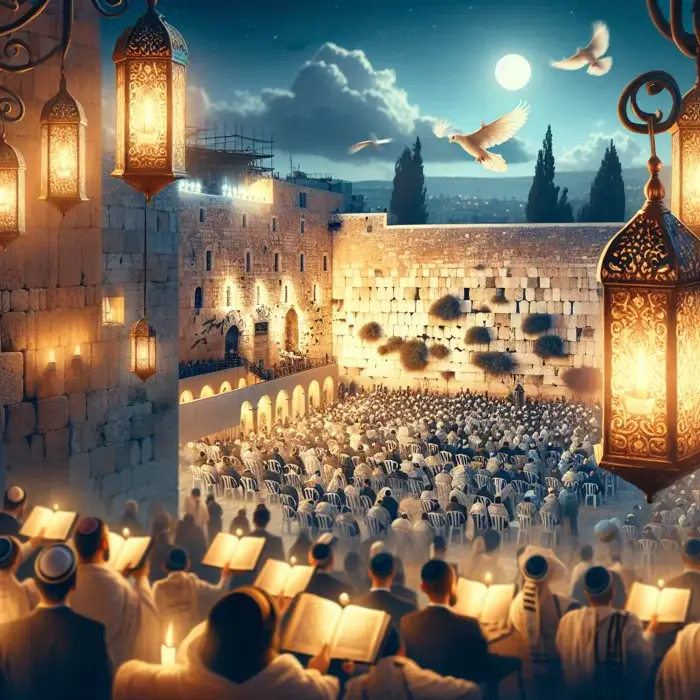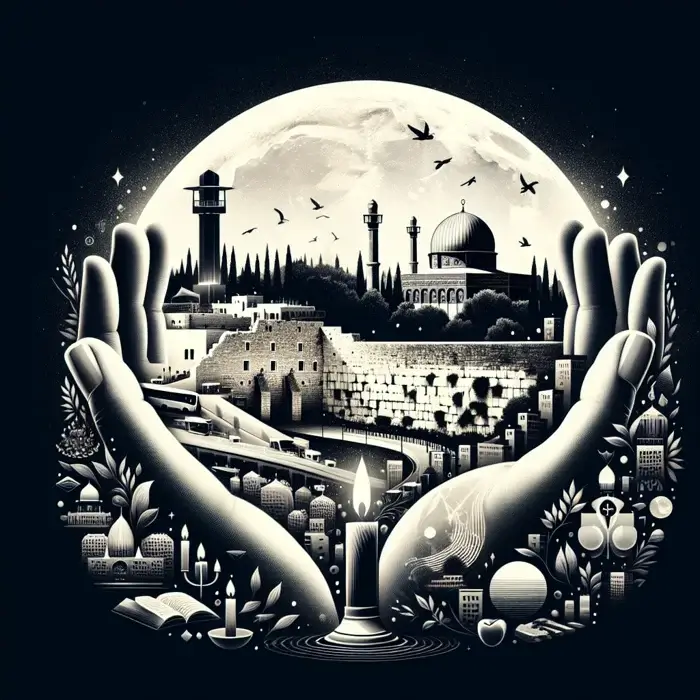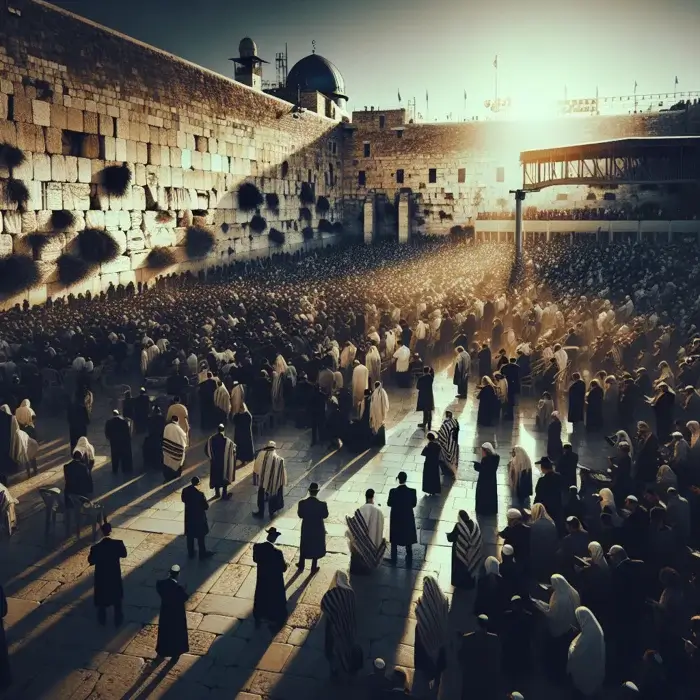Tisha B'Av in Israel
Use our holiday API to get the exact date of Tisha B'Av in Israel in every year.
Understanding Tisha B'Av in Israel

Tisha B'Av, considered among the darkest days on the Jewish calendar, also finds a place in the public holiday calendar in Israel. This day of mourning and reflection remembers various tragedies that befell Jewish people throughout history, most famously the destruction of the First and Second Temples in Jerusalem.
Historical Significance of Tisha B'Av
The origin far reaches into biblical times. Usually, it is tied with a series of calamities afflicting Jewish history, foremost the destruction of Solomon's First Temple at the hands of the Babylonians in 586 BCE and the Second Temple by the Romans in 70 CE. Other misfortunes, according to Jewish tradition, are said to have taken place on the ninth day of the Hebrew month of Av, among them, the expulsion of Jews from Spain in 1492.
Observance and Date

Tisha B'Av falls on the ninth day of Av, which is the fifth month of the Hebrew calendar. The day usually occurs in late July or early August in the Gregorian calendar. In 2025, Tisha B'Av starts at sunset on August 2 and runs through August 3 until nightfall.
Customs and Activities
Fasting and Prayer
Tisha B'Av is observed as a 25-hour fast, very much like Yom Kippur. From sunset on the eve of Tisha B'Av until nightfall the next day, food and drink are both withheld. It is a time for communal prayers and diaries, and many Jews attend synagogue services during which the Book of Lamentations is read to describe the anguish that set in after the destruction of Jerusalem.
Restrictions and Practices
Fast plays only one part in the day; the remainder of traditional practices prohibits work such as washing or bathing, wearing leather shoes, and partying. Many Jews also avoid making decisions or entering into business transactions on this day, in keeping with the somber nature of this solemn observance.
Cultural and Religious Gatherings
Tisha B'Av is not a public holiday with businesses closed. However, it is widely held with emphasis on religious obsessions. Special services are held for this day in synagogues, and special teachings pertinent to this day throughout educational institutions may be imparted. Some of the communities participate in public readings of lamentations or discuss the themes of mourning and resilience to offer participants a deeper connection with their common history.
Implications in Public Life

Are Institutions Open?
Tisha B'Av is mainly observed in Israel as a religious holiday. Being a national holiday, businesses were not obliged to close, nor were schools and government offices. In these cases, however, the very significance of the day instilled among many the impetus to take some days off for the purpose of concerning themselves with fasting and attending services. While schools might stay open, they may often hold special activities in observance of the day.
Museums and tourist attractions generally stay open, though a few might have special programs or may close early for the day. Public and communal areas, especially those close to religious places or in heavily religious neighborhoods, maintain somewhat quiet surroundings.
Conclusion
Tisha B'Av is a memory that a history has been created for it. It is the survival that makes Tisha B'Av observable in Israel, a memory that abides within the Jewish tradition. Fasting, prayers, or community-homage: there is a moment of pause during which the spirit of remembrance nurtures a feeling of unity and continuance of the Jewish people.
By retelling the history and undergoing the Tisha B'Av observance, those down-under and abroad link themselves to this tapestry of history and mourn the fate of yonder while scorning an idea of hope and endurance for the future.